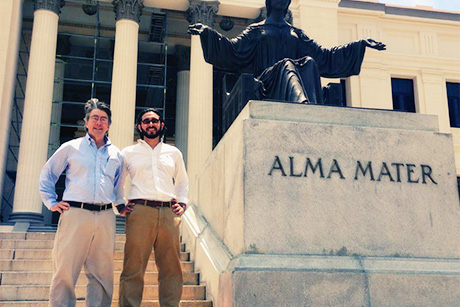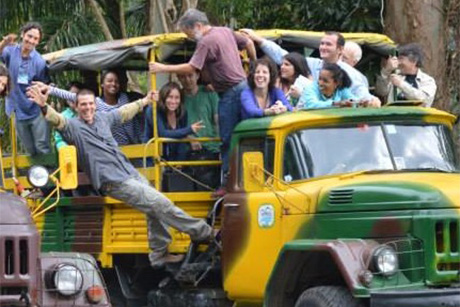Cornell initiates semester abroad in Havana
By Daniel Aloi


For the first time, Cornell students have the opportunity to spend a semester abroad in Cuba, conducting research and taking courses at the University of Havana.
Beginning this August, students concentrating in the life sciences and enrolled full time in Havana for fall or spring semester will split their time between regular classes and biological laboratory and field research.
Fredrik Logevall, Cornell vice provost for international affairs, and Gustavo Cobreiro, rector of the University of Havana, recently signed an agreement on the Cornell Cuba Research Program – the first at any U.S. school to join American and Cuban science students in research.
Cornell is “one of the first American universities to open up normal exchanges with a university in Cuba,” said Cornell professor of psychology Tim DeVoogd, who proposed the program.
The university-to-university exchange is subject to current U.S. State Department restrictions regarding Cuba, which allow for research and teaching, said DeVoogd, who directs the Latin American Studies Program.
DeVoogd and Cornell Abroad Director Marina Markot will oversee Cuba program academics and logistics, respectively. Kristen Grace, associate director of Cornell Abroad, is advising interested students, managing the application process and coordinating admissions into the program with academic advising staff in the Office of Undergraduate Biology, the College of Arts and Sciences, the College of Agriculture and Life Sciences and the University of Havana. Students can find more details at Cornell Abroad, Markot said.
Cornell students pursuing scientific research will have “access to plants and animals and ecology in a diverse island habitat,” DeVoogd said.
The program will begin with two biology labs in Havana, each of them willing to take up to two students initially, he said: “The Cubans wanted us to start small, and then work up to other labs.”
Some students will study bat neurophysiology with Emanuel Mora, who has worked with the Cornell Lab of Ornithology and has helped to promote the establishment of the University of Havana’s exchange program with Cornell. He has twice been honored by his university as its best researcher.
The other research opportunity in Havana “is in a biochemistry lab studying proteases,” DeVoogd said. “These enzymes will be isolated from marine invertebrates around Cuba and will be tested to see whether they can be used in medicine to attack bacteria.”
“This is the first of what will be a number of programs creating new places for Cornell students in particular labs, saying they will let in one, two or three students,” DeVoogd said. “We’ve made important inroads, and this has the possibility to expand.”
Markot said a research agreement with the University of Chile also is pending. The university in Santiago is the largest and oldest in Latin America, she said.
Faculty members at the University of Chile already cooperate with Cornell’s Department of Astronomy in developing and using the world’s most advanced telescopes, DeVoogd noted. Under the agreement envisioned, Cornell undergraduates in astronomy, physics, engineering and computer science will be able to participate in this research while taking classes with Chilean students.
Media Contact
Get Cornell news delivered right to your inbox.
Subscribe